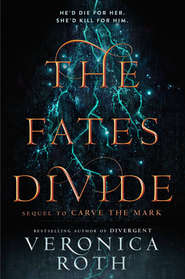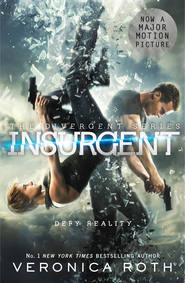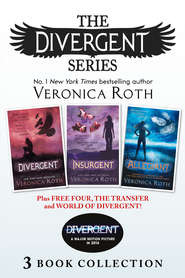По всем вопросам обращайтесь на: info@litportal.ru
(©) 2003-2025.
✖
The End and Other Beginnings: Stories from the Future
Настройки чтения
Размер шрифта
Высота строк
Поля
“Oh, so you’re saying you feeling like shit all the time is a choice.” His face was red. “Forgive me, I didn’t realize.”
“You think I want to pump my body full of chemicals so I can feel flat all the time?” I snapped. “How am I supposed to be myself when something is altering the chemistry of my brain? How can I make anything, say anything, do anything worthwhile when I’m practically lobotomized?”
“That isn’t what—”
“Stop arguing with me like you know something about this. Just because you have this emotional trump card in your back pocket doesn’t mean you get to decide everyone else’s mental state.”
“Emotional trump card?” he repeated, eyebrows raised.
“Yeah!” I exclaimed. “How can I possibly have a legitimate problem when I’m talking to Matt ‘My Dad Died’ Hernandez?”
It had just … come out. I hadn’t thought about it.
I knew that Matt’s father’s death wasn’t a tool he used to control other people. I had just wanted to hurt him. It had been a year, but he was still raw with grief, right under the surface, and embarrassed by it. I knew that, too. Between us was the memory of him sobbing in the car while he held tight to my hand.
After weeks of ignoring his texts, and lying to him about why I couldn’t come hang out, and snapping at every little thing, I guess me using his dad’s death against him was the last straw. Even then, I hadn’t blamed him. It was practically a reflex to blame myself anyway.
“Matt,” I started to say.
“You know what?” he said, coming to his feet. “Do whatever you want. I’m done here.”
“I made a mistake,” Matt said, and his mouth was the first thing to materialize in the new memory—the lower lip bigger than the top one, even his speech a little lopsided, favoring the dimpled side. “I should have started the story here.”
We were in the art room. It was bright white and always smelled like paint and crayons. There were racks along the back wall, where people put their projects to dry at the end of each class period. Before I had started failing art because I didn’t turn in two of my projects, I had come here after school every other day to work. I liked the hum of the lights, the peace of the place. Peace wasn’t something that came easily to me.
My classmates were in a half circle in front of me. I was sitting in a chair, a desk to my right, and there were wires stretching from electrodes on my head to a machine beside me. The screen faced my classmates. Even without the electrodes, I knew how old I was by the color of my fingernails—my freshman year of high school, I had been obsessed with painting my nails in increasingly garish and ugly colors, lime green and sparkly purple, glow-in-the-dark blue and burnt orange. I liked to take something that was supposed to be pretty and make it ugly instead. Or interesting. Sometimes I couldn’t tell the difference between the two.
This was the second major art project of my freshman year, after the photographs of the love rocks. I had become fascinated by the inside of the brain, like it would give me explanations for everything that had happened to me and everything happening inside me. A strange stroke of inspiration, and I had applied for a young artists’ grant to purchase this portable equipment, at the forefront of medical advances in neuroscience. A doctor had taught me how to use it, spending several hours with me after school one day, and I had wheeled it into my art class soon afterward.
I didn’t say anything to explain it, just hooked myself up to the machine and showed the class my brain waves and how I could alter them. I did a relaxation exercise first, showing my brain on meditation; then I did math problems.
I listened to one of my favorite comedians. I recounted my most embarrassing memory: sneezing and getting snot all over my face during a school presentation in sixth grade. My brain waves shifted and changed depending on what I was doing.
I kept my brain waves clean of emotional turmoil—the muck of my mother not coming downstairs for breakfast that one morning when I was five, the empty space in the driveway where her car had been. I kept secret the chaos of my heart and guts. I was only interested in showing the mechanics of my mind, like the gears in a clock.
When I finished, the class greeted me with scattered applause. Unenthused, but that wasn’t surprising. They never liked anything I did. One of the girls raised her hand and asked our teacher, “Um … Mr. Gregory? Does that even count as art? I mean, she just showed us her brain.”
“It counts as performance art, Jessa,” Mr. Gregory said, taking off his glasses. “Think about what you just said—she showed us her brain. An act of vulnerability. That is incredibly rare, in life and in art. Art is, above all things, both vulnerable and brave.”
He gave me a wink. Mr. Gregory was part of the peace of this room. He always seemed to understand what I was getting at, even if I couldn’t quite get myself there.
“Why are we here?” I said to Visitation Matthew, frowning. “We didn’t even know each other yet.”
Matt was sitting near the back of the class, on the side, his head bent over a notebook. He smiled at me within the visitation. Dimpled cheek, crinkled eyes, a flash of white teeth.
“This is where our story started,” he said. “You were so … I mean, their opinions were completely irrelevant to you. It’s like while everyone else was listening to one song, you were listening to another. And God, I loved that. I wanted it for myself.”
It made me feel strange—weightless in places, like I was turning into tissue paper and butterfly wings.
“You think I didn’t care what they thought of me?” I shook my head. I couldn’t let him believe a lie about me, not now. “Of course I cared. I still can’t think about it without blushing.”
“Fair enough,” he said. “But I went to that party sophomore year because I found out you were going and … I wanted to get to know you. I loved this project. I loved everything you did in art class. I felt like you had showed yourself to me, and I wanted to return the favor.”
My cheeks felt a little warm. “You never said.”
“Well, you’ve said before that talking about old projects embarrasses you,” he said, shrugging. “So I never wanted to bring it up.”
“This is what I was worried about, you know,” I said softly. “About the medication. That it would mean I couldn’t do this—art—anymore. I mean, feeling things—feeling intense things, sometimes—is part of what drives me to make things.”
“You think you can’t feel better and do great work at the same time?”
“I don’t know.” I chewed on my lip. “I’m used to being this way. Volatile. Like a walking ball of nerves. I’m worried that if I get rid of the highs, and even the lows—especially the lows—there won’t be anything about me that’s interesting anymore.”
“Claire.” He stood, weaving through the chairs, and crouched in front of me, putting his hands on my knees. “That nerve ball isn’t you. It’s just this thing that lives in your head, telling you lies. If you get rid of it … think of what you could do. Think of what you could be.”
“But what if … what if I go on medication and it makes me into this flat, dull person?” I said, choking a little.
“It’s not supposed to do that. But if it does, you’ll try something else.” His hands squeezed my knees. “And can you really tell me ‘flat’ is that much different from how you feel now?”
I didn’t say anything. Most of the time I was so close to falling into the darkest, emptiest place inside me that I just tried to feel nothing at all. So the only difference between this and some kind of flat, medicated state was that I knew I could still go there if I needed to, even if I wouldn’t. And that place, I had told myself, was where the real me was. Where the art was, too.
But maybe—maybe that wasn’t where it was. I was so convinced that changing my brain would take away my art, but maybe it would give me new art. Maybe without the little monster in my mind, I could actually do more, not less. It was probably equally likely. But I believed more in my possible doom than my possible healing.
“It’s okay to want to feel better.” He touched my hand.
I didn’t know why—they were such simple words, but they pierced me the way music did these days. Like a needle in my sternum, penetrating to my heart. I didn’t bother to blink away my tears. Instead of pulling myself back from them, back from sensation entirely, I let myself sink into it. I let the pain in.
“But how can I feel better now?” I covered my eyes. “How can I ever … ever feel better if you die?”
I was sobbing the way he had sobbed in the car with me, holding on to his hands, which were still on top of my legs. He slipped his fingers between mine and squeezed.
“Because,” he said. “You just have to.”
“Who says?” I demanded, scowling at him. “Who says I have to feel anything?”
“I do. I chose you for one of my last visitors because … I wanted one last chance to tell you that you’re worth so much more than your pain.” He ran his fingers over my bent knuckles. “You can carry all these memories around. They’ll last longer than your grief, I promise, and someday you’ll be able to think of them and feel like I’m right there with you again.”
“You might not be correctly estimating my capacity for grief,” I said, laughing through a sob. “Pro-level moper right here.”
“Some people might leave you,” he said, for once ignoring a joke in favor of something real. “But it doesn’t mean you’re worth leaving. It doesn’t mean that at all.”
I didn’t quite believe him. But I almost did.
“Don’t go,” I whispered.
After that, I carried him back to the ocean, the ripples reflecting the moon, where we had treaded water after jumping off the cliff. The water had filled my shoes, which were now heavy on my feet, making it harder to stay afloat.
“You have makeup all over your face,” he said, laughing a little. “You look like you got punched in both eyes.”
















